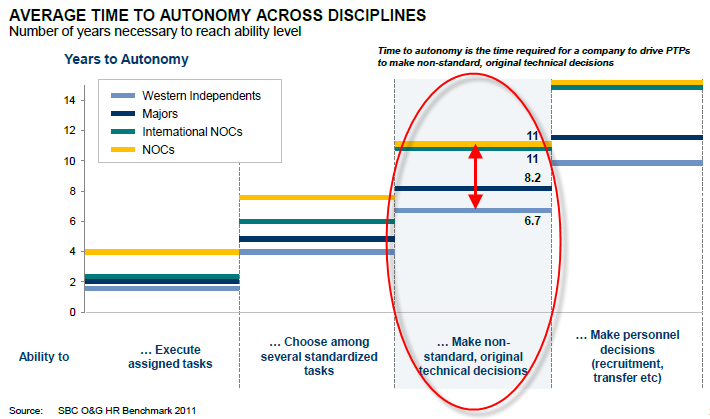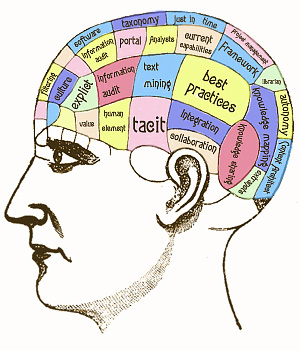How Knowledge Management can effectively serve the organization governance
Submitted by Catherine Boissonnet on Thu, 18/09/2014 - 11:15This interesting article about decision making emphasizes the close link between the treatment of internal and external information, understanding of events resulting from it, their transformation into knowledge and decision making.
From the working hypothesis of the author, that decision making can be defined as knowledge management in real time, it is crucial that organizations adopt a comprehensive KM strategy: its policy, its implementation and technological support.
Social KM and its fundamental principles give meaning here:
- Facilitate the appropriate use of information provided by people,
- by their qualification, responsible dissemination, capitalization and
- their promotion through exchanges.
Return On Knowledge (ROK) for Knowledge Networks
Submitted by Catherine Boissonnet on Tue, 05/02/2013 - 12:58Schlumberger Business Consulting (SBC) compared 37 companies within the Oil and Gas sector in relation to the time that their experts and engineers spent on becoming autonomous (the autonomy delay). In other words, the time required for these experts & engineers to make nonstandard technical and original decisions.
Knowledge Management makes a difference..
The outcome was that an "innovative" organization gains between 3 to 5 years of autonomy as compared to so called "traditional" companies. SBC’s conclusion was that, one of the main reasons for this outperformance was the widespread use of Knowledge Management (KM).
Knowledge Management as practiced today is a proven technology and can truly measure a Return on Investment (ROI).
Let’s term this ROI as ROK ! Return On Knowledge.
This ROK will become more and more important as organization’s implement and rely on networks centered on structured knowledge. This leads us to the fact that networks and knowledge are inseparable. Networks are a mine field of knowledge, where knowledge is created, shared, validated and reused over and over again. In other words, knowledge breathes life into these network(s), which are the basic principles of Social KM (SKM).
What will be expected of these knowledge networks?
- Record, index and classify within various Data Bases (DB) the lessons learnt and “know-how” feedback.
- Create linkages and knowledge transfer processes between learning professionals and senior knowledge holders (an example amongst many).
The value of KM lies within the network, in other terms; the value is derived from the collective network by using individuals, activities or processes as key building blocks.
Companies must take into account the impact of Knowledge Networks on their organizations. Not only are companies the guarantor of knowledge preservation (retirements, turnover, etc.), but should also take advantage of the numerous opportunities for innovation implementation.
Portrait of the modern knowledge worker
Submitted by Chloe Jacquety on Mon, 23/04/2012 - 15:03Knowledge Management
Submitted by Chloe Jacquety on Mon, 12/03/2012 - 11:00The easy definition of KM is the ideas, experience, events that people share and exchange in particular issue which can lead improvement as well innovation.
source : by elmi on knowledge-management-online.com
Introduction au Knowledge Management
Submitted by Chloe Jacquety on Mon, 27/02/2012 - 15:23Source : Knoco, About Knowledge Management
Derniers billets
- How Knowledge Management can effectively serve the organization governance
- Return On Knowledge (ROK) for Knowledge Networks
- Interview d'expert : Jean-Louis ERMINE, Directeur de l'innovation, TELECOM Business School, FR
- Knowledge & Pizza
- Interview d'expert : Nicolas NADAL, IBM Global Services, FRANCE
- Interview d'expert : Jens Øjvind Nielsen, CEO LeadingCapacity ApS, DANEMARK
- Portrait of the modern knowledge worker
- Interview d'expert : Jean-Yves BARBIER, Ecole Polytechnique, FRANCE
- Interview d'expert : Stephanie Barnes, Chief Chaos Organizer, Missing Puzzle Piece Consulting, CANADA
- Interview d'expert : Pascal Bernardon, Directeur de Programme KM, FRANCE





